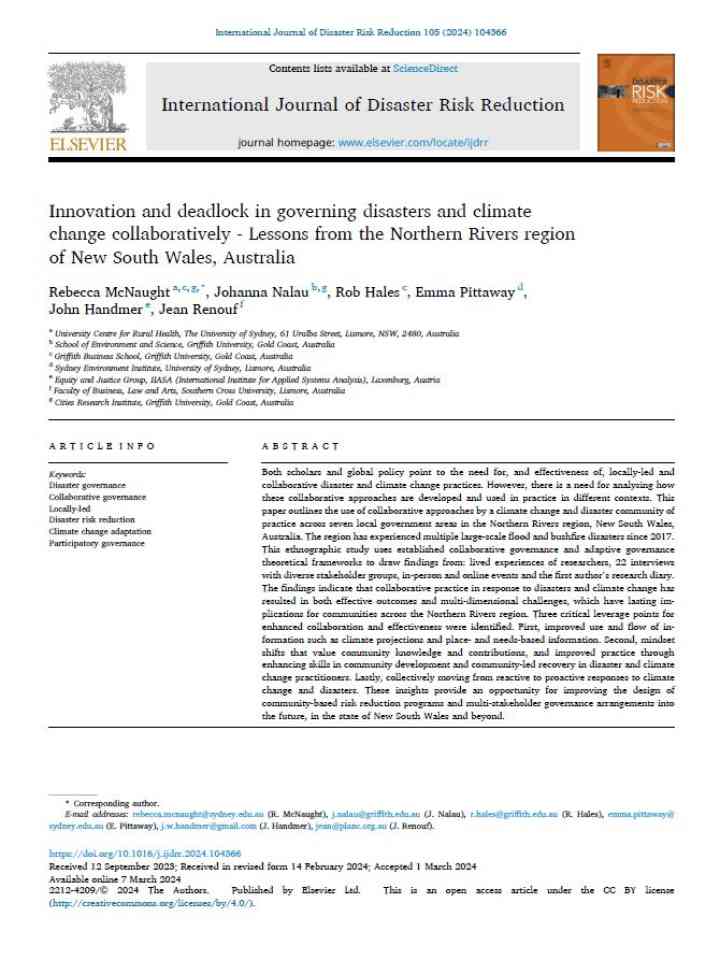Innovation and deadlock in governing disasters and climate change collaboratively - Lessons from the Northern Rivers region of New South Wales, Australia
This paper outlines the use of collaborative approaches by a climate change and disaster community of practice across seven local government areas in the Northern Rivers region, New South Wales, Australia. The region has experienced multiple large-scale flood and bushfire disasters since 2017. This ethnographic study uses established collaborative governance and adaptive governance theoretical frameworks to draw findings from: lived experiences of researchers, 22 interviews with diverse stakeholder groups, in-person and online events and the first author's research diary.
The findings indicate that collaborative practice in response to disasters and climate change has resulted in both effective outcomes and multi-dimensional challenges, which have lasting implications for communities across the Northern Rivers region. Three critical leverage points for enhanced collaboration and effectiveness were identified. First, improved use and flow of information such as climate projections and place- and needs-based information. Second, mindset shifts that value community knowledge and contributions, and improved practice through enhancing skills in community development and community-led recovery in disaster and climate change practitioners. Lastly, collectively moving from reactive to proactive responses to climate change and disasters. These insights provide an opportunity for improving the design of community-based risk reduction programs and multi-stakeholder governance arrangements into the future, in the state of New South Wales and beyond.
Explore further
